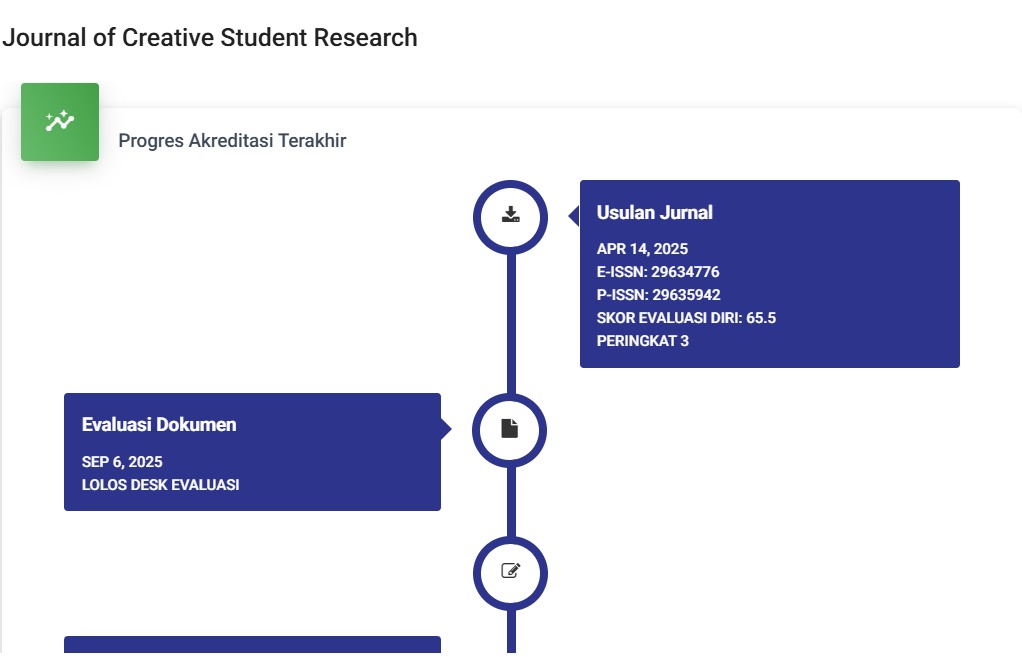Implementasi Sistem Informasi Manajemen Lingkungan Hidup Dalam Pengambilan Keputusan Berbasis Data di Indonesia
DOI:
https://doi.org/10.55606/jcsr-politama.v2i4.4146Keywords:
Environmental Management Information System (EMIS), data-based decision-making, environmental management, IndonesiaAbstract
The implementation of the Environmental Management Information System (EMIS) is crucial in supporting data-driven decision-making for environmental management in Indonesia. This study aims to analyze the implementation of EMIS and its impact on data-based decision-making in environmental management. The research method used is a combination of qualitative and quantitative approaches. Data collection was carried out through interviews, observations, and document studies, as well as a survey of relevant stakeholders. The results show that the implementation of EMIS in Indonesia has not been optimal yet. There are several challenges, such as incomplete and unreliable data, limited integration between systems, inadequate human resource capacity, and weak institutional coordination. As a result, the use of EMIS data in environmental decision-making is still limited. To improve the implementation of EMIS and its impact on data-based decision-making, several efforts are needed, including (1) improving data quality and integration between EMIS and other relevant information systems; (2) enhancing the capacity of human resources in data management and analysis; (3) strengthening institutional coordination and commitment; and (4) increasing the involvement of stakeholders in the development and utilization of EMIS. The effective implementation of EMIS is expected to provide accurate, up-to-date, and integrated environmental data, thereby supporting more informed and evidence-based decision-making in environmental management in Indonesia.
Downloads
References
Bappenas. (2020). Laporan Tahunan Pengelolaan Lingkungan Hidup.
Baird, J. (2018). Data-Driven Decision Making in Environmental Management. Environmental Science Journal, 15(3), 45-59.
Halim, R., et al. (2022). Evaluasi Implementasi SIMLING di Indonesia. Jurnal Manajemen Lingkungan, 10(1), 23-36.
Kementerian Lingkungan Hidup dan Kehutanan. (2019). Status Lingkungan Hidup Indonesia.
Purnamasari, D. (2023). Meningkatkan Kualitas Data dalam Sistem Informasi Lingkungan. Jurnal Teknologi Informasi, 7(2), 78-89.
Rizki, A. (2022). Koordinasi Lintas Sektor dalam Pengelolaan Lingkungan. Jurnal Administrasi Publik, 14(4), 112-125.
Sembiring, R. (2021). Potensi SIMLING dalam Pengelolaan Lingkungan Hidup. Jurnal Studi Lingkungan, 9(2), 98-105.
Widodo, S. (2020). Kapasitas Sumber Daya Manusia dalam Pengelolaan Data Lingkungan. Jurnal Sumber Daya Alam, 8(1), 34-50.
Downloads
Published
How to Cite
Issue
Section
License
Copyright (c) 2024 Journal of Creative Student Research

This work is licensed under a Creative Commons Attribution-ShareAlike 4.0 International License.








